通識教育模範教學獎2019
時間: 5:00 - 5:30pm
地點: 香港中文大學鄭裕彤樓203室
本年度榮獲提名的老師有十二位。教務會通識教育委員會議決頒發「通識教育模範教學獎」予人類學系/歷史學系的林永昌教授、數學系的劉智軒博士、大學通識教育部的梁卓恒博士,以及大學通識教育部的李明博士。
程序林永昌教授
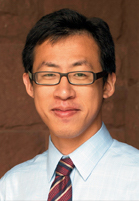
Professor Lam Weng Cheong has been teaching at The Chinese University of Hong Kong under the joint appointment by the Department of Anthropology and the Department of History since 2015. Professor Lam has taught four General Education courses, namely, UGEA2330 China’s Cultural Heritage, UGEB2502 Human Evolution, UGEB2505 Deciphering the Past: Culture, Archaeology and Science, and UGEC1633 Understanding Archaeology. His research currently focuses on ancient market exchange and the development of metal technology in ancient China. Professor Lam believes that the role of a teacher is to make academic knowledge easier to understand and to inspire students to see the connections between the past and the present in human societies.
I love my subjects of teaching. I have taught four General Education courses in the past five years: UGEA2330 China’s Cultural Heritage, UGEB2502 Human Evolution, UGEB2505 Deciphering the Past: Science, Archaeology, and Culture, and UGEC1633 Understanding Archaeology. I believe that the role of teaching is to be an “intellectual midewifery”. When I designed these courses, I also reminded myself the critical challenge that the humanities were encountering during this globalized era. Since the search for “factual knowledge” on-line becomes much more convenient, students can easily access to photos and descriptions about the great archaeological discoveries around the world just by searching digital databases nowadays available on many museum websites. As a result, the value of learning experience via lectures that focus merely on “factual knowledge” is declining. However, the humanities have an important value, which probably will not change regardless of the development of technology, of offering different perspectives on issues that our recent world still is struggling and entangling with, such as health problems, and long-term social traditions that have navigated the development of history in later times. Therefore, I view my teaching as a precious opportunity to share and to learn: to share my idea about the meaning of the subjects and ways to identify problems, and to learn from students how to add more meaning to the study and learning experience of the human past.

One key element of my teaching is offering a big picture of the subject and its relevance to our daily lives. For instance, when I was teaching UGEB2505 Deciphering the Past: Science, Archaeology, and Culture, I started the beginning of each lecture by showing the exhibition of certain types of artifacts in different museums, which were related to the techniques that I would introduce later in the lectures. Then I asked my students to evaluate the exhibition (i.e. how they felt about the current interpretation), and invited other suggestions from students about the aspects that they would like to learn more from the exhibition (i.e. how to look for the alternatives), and about critical comments on ways which they were not satisfied with the story of the artifacts provided. Through the introduction of various alternative techniques, I tried to transform each lecture from a presentation of factual knowledge about scientific methods and analytical results to an “intellectual journey” through which students could understand how archaeological science is able to make a difference and provide an alternative way for us to understand culture and the past.

In the discussion during lectures and tutorials, I have been careful not to provide an easy and direct answer. Instead, I would try to arouse students’ concerns on the implications and issues involved in the case studies. Also, according to my experience, what students learn from each other is often valuable. To encourage peer-learning, all my courses involve a group project at the end, and the last few sections of tutorials would be used for presentation. Students who did not need to present had to evaluate and comment on other students’ works. In addition, I integrated the major concepts, ideas, and arguments from the lectures into the designs of hands-on practice in the tutorials. I believe that one critical way to make the lectures or tutorials more engaging is to let students identify the answers by themselves and to learn from their peers. We have to trust that our students are capable of identifying the answers on their own, as long as we the teachers provide enough guidelines for them.

Knowledge in fact includes meanings of multiple levels. For students, the ways of understanding the value of their study subjects sometimes are more important than the basic factual knowledge that could be easily found on websites. My aim is that, through studying various cases together in the lectures, some day in the future the students will remember the insight that they gained through the discussion in my classes and will use it to make sense of the fast-changing world around them. Last but not the least, teaching is often not an innate skill. On my journey of learning how to teach, I am fortunate to have had many mentors and role-models in my departments, and great students providing effective feedback for me to improve the learning experience of my classes.

劉智軒博士
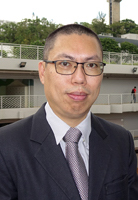
Dr. Lau Chi Hin obtained his Ph.D. in Mathematics from The University of Hong Kong, and B.Sc. and M.Phil. in Mathematics from The Chinese University of Hong Kong. Dr. Lau joined the Department of Mathematics at The Chinese University of Hong Kong as a Lecturer in 2005. Dr. Lau has been teaching two courses on game theory, namely MATH4250 Game Theory, for mathematics major students, and UGEB2530 Games and Strategic Thinking, a University General Education course for almost ten years. Dr. Lau has designed a number of interesting games to facilitate students to study game theory.
I am truly humbled and honoured to receive the Exemplary Teaching Award in General Education. The award is a great recognition and encouragement to me. I must thank the Department of Mathematics for the nomination and my fellow colleagues for their support throughout these years.
Teaching UGEB2530 Games and Strategic Thinking is a big challenge for me because students have diversified interests and needs. There are some students who are lack of confidence in their ability. I recall that once there was a student who intended to drop out after three weeks of studies because she felt that her proficiency in mathematics was too weak to pass the course. I encouraged her to put more efforts towards the course and promised to help her overcome the difficulties. We agreed that she could drop the course if she still felt the frustration after the first test. She later came to my office regularly to seek for help. I listened to her and built up her confidence by showing that she was capable of using mathematics to solve problems. She had never mentioned dropping out again and eventually obtained an excellent grade in the course.

Game theory is a study of strategy and conflict, in which players make choices to maximize their own benefit. It has application from simple parlour games among friends, market competition between business companie,s to political conflicts between nations. In UGEB2530 Games and Strategic Thinking, students first learn basic concepts and ideas in game theory, and then practice what they have learned through interactive in-class games. At the end of the course, students are asked to apply the theory to study a topic they choose, e.g. trade war, intercompany rivalry, oil price, etc. The creativity of students always surprised me as they are competent to apply game theory in daily life like course enrolment, conflicts with other transportation passengers and social issues.

Most of my General Education students will not meet me again after completion of the course. As one of the most important goals of a General Education course is to broaden students’ horizon of studies, throughout the course, I try hard to facilitate students to build a good learning habit rather than just studying well in a single course and encourage them to read more by providing extra materials and topics for their further studies. I truly hope that my students would understand that life is a process of continuous learning.

梁卓恒博士
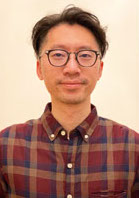
Dr. Leung Cheuk Hang obtained his B.SSc. degree in Politics from The Chinese University of Hong Kong and Ph.D. degree in Education from University College London. His research interests include values education, civic education, and cultural politics of education. Dr. Leung is currently a Lecturer in the Office of University General Education and is responsible for teaching General Education courses UGFH1000 In Dialogue with Humanity for the General Education Foundation Programme and GENA1113 Student-Oriented Teaching and Seminar for New Asia College. Dr. Leung has been engaged in developing virtual learning tools and online learning platform for General Education courses. Dr. Leung is also active in conducting pedagogical research on the ideas, curriculum, and assessments of University General Education.
My philosophy of university teaching is to cultivate students to become intellectually critical and morally responsible citizens. I believe that a comprehensive General Education curriculum design should be well integrated with elements of philosophy, literature, political theory and history so as to enable the university to accomplish the task of nurturing future citizens. Teaching classics in the format of mandatory course in the case of UGFH1000 In Dialogue with Humanity is an essential platform to provide moral and civic education to all students. That said, one should avoid defining classics, as in the traditional Great Books Programme, as sacred writings that convey ultimate ideals for good life and good society. To avoid moral conservatism and paternalism, I do not adopt the essentialist approach to the interpretation of classics in class that is supposed to conduct values education on topics such as meaning of life, human existence, ethical relationship, human suffering, death and transcendence, political legitimacy and social justice. The curriculum should not lie in the study of the text in itself (unlike a classics studies course), nor the texts are the ultimate answers to our humanities questions (unlike a conventional Great Books course). Rather, it should emphasize on the learning scenario of different humanities issues through the collective experience of reading these classics from teacher and students.

On this basis, I follow a dialogical approach to conduct a values education pedagogy that connects texts, issues, and participants (oneself, fellow students & teacher) in the context of realizing good life and good society. The dialogical approach does not deny the values of classics. There are a lot of good reasons for reading classics, though it is not necessary for us to agree with the ideological judgements underlying the text. What I care most is the transformative experience of getting through a good quality of work in humanity classics. Certainly, there is a prerequisite to attain intellectual satisfaction. And I would be responsible for assisting students to acquire academically rigorous understanding and interpretation of the texts. Students are encouraged to discuss the moral and ethical issues through engaging narratives, philosophical reasoning, storytelling, and case study arising from the textual analysis. On such dialogue among texts, issues, and human interaction, I aim at cultivating moral personhood that is capable of reconciling rationality, sentiment, and bodily existence in one’s life scenario.

Curriculum design is also important to effective teaching and learning. Apart from deploying appropriate teaching methods in facilitating dialogues, I think that it would be indispensable to construct an overarching conceptual framework to accommodate all course materials for this core-texts curriculum. Otherwise, it would become confusing and less purposeful in reading a package of classical texts in which their variations span across perspectives, cultures and issues. Therefore, in teaching UGFH1000 In Dialogue with Humanity, I propose the idea of ‘autonomy’ as the key reference point for evaluating good life and good society in order to build up a conceptual schema to accommodate different texts in the syllabus. On one hand, each text is assigned to a particular humanity issue, such as human existence, moral awareness, love, suffering, political legitimacy, distributive justice etc. and these texts are categorized into three sections, namely ‘Self and Human Capacities’, ‘Faith and Human Limitation’ and ‘Self in Social Institutions’. Part of my tasks would be facilitating students to understand the texts and to get along with different interpretations in accordance with the relevant cultural and historic backgrounds. On the other hand, we would evaluate these interpretations from the experiences of modern times and testify those normative claims of the texts in reference with the idea of autonomy. In doing so, we would avoid an essentialist approach on interpreting the texts (as sacred writings), since the teacher does not intend to indoctrinate students with the normative values of the texts and at the same time, the curriculum would not get caught from being criticized as alienated from values engagement. A core-text course, as a version of values education, should not stand away from normative values. The idea of autonomy, which, I believe, is not a product of any version of comprehensive doctrines, is therefore the best conceptual schema to nurture morally responsible citizens and inform them of the phenomena of human world.

李明博士
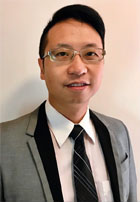
Dr. Li Ming Kenneth obtained his B.Sc. and M.Phil. degrees in Biology, and Ph.D. degree in Biochemistry from The Chinese University of Hong Kong. Dr. Li is currently a Lecturer in the Office of University General Education. Dr. Li has taught the General Education Foundation course UGFN1000 In Dialogue with Nature and the blended learning version of the course (UGFN1001) for a cross-institutional course-sharing project with students coming from three other local universities. Dr. Li is devoted to developing student-centered pedagogy, including flipped classrooms, blended learning, peer-assisted learning, and experiential learning. His initiative of experiential learning through rooftop farming has enriched students’ learning experience. Extending this good practice, Dr. Li has developed UGEB2296 Experiencing and Rethinking Science and Technology in Agriculture, an experiential learning course on modern agriculture and related sustainable development goals. Dr. Li has endeavored to explore opportunities for students to learn beyond the courses to accelerate their growth and development. Dr. Li has also taught GESH1010 Orientation and Outreach. Being a certified wine educator, Dr. Li is also passionate about wine education.
General Education (GE) is far more than “gaining common knowledge from various disciplines” (通通都識) as the Chinese word “通識” may have been commonly perceived. To me, the essence of GE is to develop students’ ability to connect (通) the knowledge (識) from different aspects, find similarities behind apparent discrepancies, identify discrepancies from apparent similarities, and integrate knowledge with real-life situations. The coherent connection of knowledge lies at the heart of GE, while the board knowledge and skills are the veins to keep it alive. GE helps students develop a coherent understanding and the skills to scrutinize the enduring issues and global challenges from a holistic approach. As a GE teacher, I endeavor to connect the book knowledge among different disciplines, real-world situations, and students’ lives when teaching my students in the GE courses UGFN1000 In Dialogue with Nature and UGEB2296 Experiencing and Rethinking Science and Technology in Agriculture.

The developments of the attitudes and skills for critical thinking, self-reflection, and effective communication are crucial to educated persons and active learners. In my classroom, I position myself as a facilitator to encourage different voices and modulate the exchange of ideas by using an interactive approach. Instead of providing answers, I give my students questions. I always ask for clarification, elaboration, and explanation of their viewpoints. I firmly believe by questioning and criticizing each other, they can have real reflections. Through this practice of the Socratic dialogue, I guide my students to develop critical thinking skills, formulate arguments, realize their own logical fallacies, build up the confidence to question and being questioned, and the ability to think through complex issues.
Diversity is a core element in my teaching, and I believe it is of prominent importance in GE. Diversity does not only refer to the diverse knowledge or the diverse aspects of nurturing whole persons, but also the very diverse academic backgrounds and abilities of the GE students. I think the best way to face the challenge of the diversity in GE is to embrace the diversity in teaching and learning. Therefore, I have developed various pedagogies, such as flipped classrooms, blended learning, experiential learning, peer-assisted learning, and individual consultation.
Each student is unique in terms of personality, competence, learning needs, study struggle, family issues, financial status, emotional stability, and mental health. I always enjoy spending time to know their study situations, listen to their feedbacks, care about their lives, discuss their plans and share my experience. From my observation, students need someone they trust to care about their feelings, listen to their worries, enlighten their minds, support their decisions, and share stories with them. Many of them face immense pressure nowadays. As their teacher and mentor, I care about their feelings most. After all, I am not teaching the GE courses; I am teaching the persons who study the courses. They have unique stories and needs.

A course is bounded by a start date and an end date. However, learning is never bounded. It is a life-long process happening anytime in our lives. We all learn from our experience, and the experience itself is the best teacher. I believe authentic learning and experience sharing are critical for whole-person development and life-long learning. To act on my belief, I engage my students to learn beyond the courses. I transform the rooftop garden at the Hui Yeung Shing Building into a community garden. I involve the students in its management and maintenance so that they can apply their knowledge through this authentic learning approach. My vision is to build a community formed by students from different semesters and courses, together with other teachers and colleagues, so that everyone can share experience and learn from each other.
I see myself as a farmer. Instead of growing crops, I nurture my students. I try my best to provide appropriate soil and favorable conditions for every student. With all the tears and joys, the seeds will germinate, seedlings will grow, flowers will bloom, fruits will set, and the same goes to their next generations. Each student is unique; some may show dormancy today but bloom beautifully in an unexpected way in the next years. They always surprise me.

